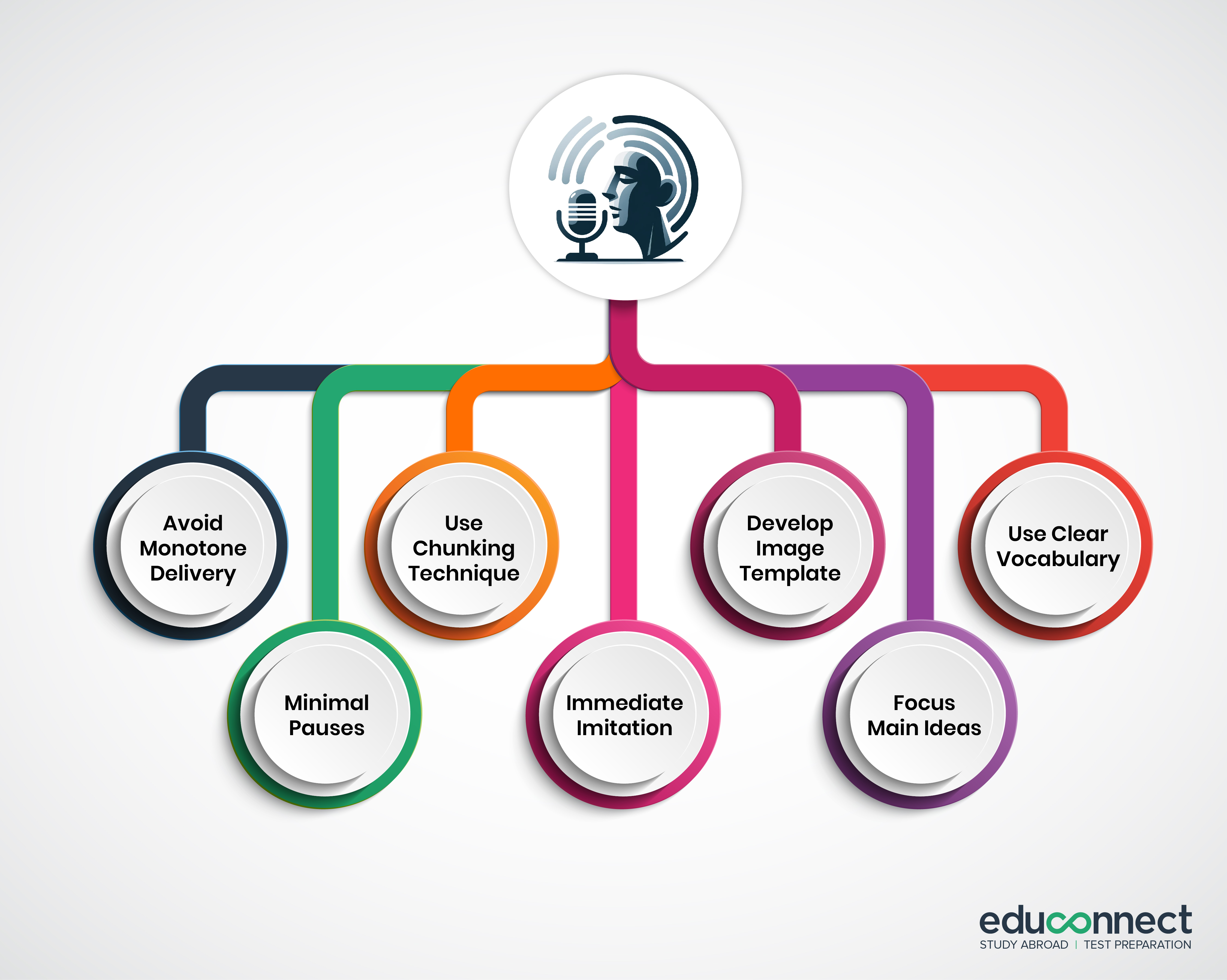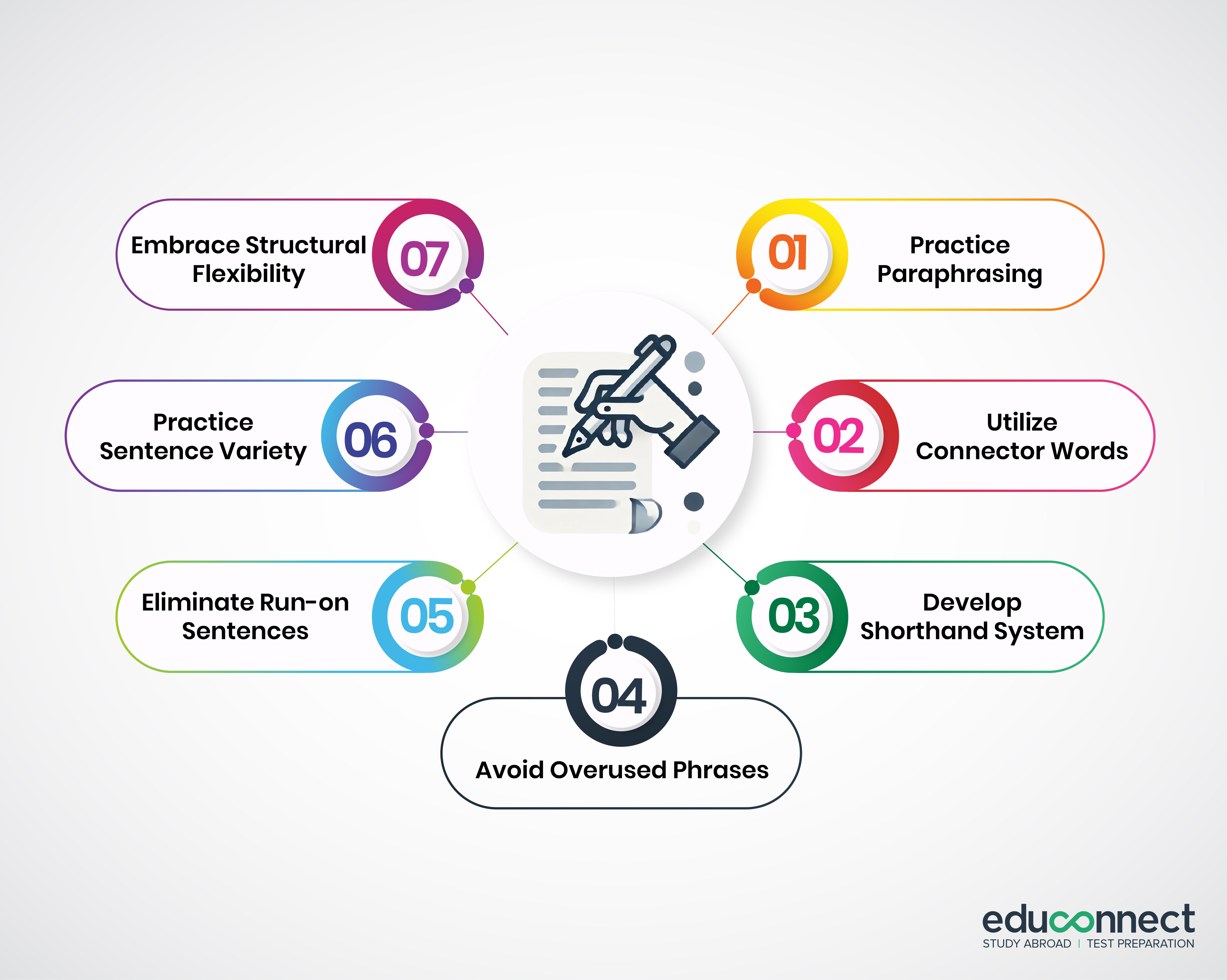Welcome to the Ultimate PTE Guide, a comprehensive and strategic handbook designed to equip you with the latest tips and tricks you need to excel in the Pearson Test of English Academic (PTE Academic). The PTE Academic is a globally recognized English proficiency test that evaluates your skills in speaking, writing, reading, and listening. It is a computer-based exam that leverages advanced technology to assess your English communication skills in real-life scenarios. Whether you are a student, professional, or aspiring immigrant aiming to achieve your language goals, this self-study guide will serve as your companion on the journey toward a high PTE score.
Maximize your PTE success with these high-scoring strategies:
SPEAKING

- Avoid Monotone Delivery: Emphasize keywords, pause naturally at commas, and use a rising or falling tone at appropriate places. Don’t just read mechanically— sounding natural boosts your score.
- Minimal Pauses: Pauses longer than 3 seconds can result in scoring deductions. Practice reducing filler words like “um” and “ah” with brief, confident pauses.
- Use Chunking Technique: Break sentences into meaningful chunks rather than pausing word by word. It makes your speech sound more natural. For example, instead of "Climate / change / is / a / global / concern," try "Climate change / is a global concern."
- Immediate Imitation: Repeat the sentence aloud even if you make a mistake—don’t pause. Keeping the flow matters more than perfect recall.
- Develop a template for describing images. A basic example: “The image displays [main subject] with a focus on [detail], indicating [trend].” Use this framework until it feels natural.
- Don’t try to remember every detail. Focus on understanding the main idea and a few supporting points. Use symbols and shorthand for taking notes.
- Stick to the vocabulary you are comfortable with and can pronounce clearly. Mispronounced advanced words can negatively impact your score.
- For describing images or retelling lectures, practice replacing simple words with their synonyms to make your speech more varied.
WRITING

- Instead of directly copying phrases from the passage, rephrase sentences using your own words. Practice paraphrasing academic articles to develop this skill.
- Utilize connector words like "however," "therefore," "in addition," and "because" to create a logical flow in your summary. This will improve coherence and give a polished look to your sentence.
- Develop your shorthand system for note-taking. Abbreviations for common words (e.g., "govt." for government) or symbols (like “↑” for increase) will save you time.
- Avoid Overused Phrases: Instead of using generic phrases like “In today’s world...” or “It is a well-known fact...,” aim for more specific and contextually relevant opening lines.
- Eliminate Run-on Sentences: Long, complicated sentences can lead to grammatical errors. If in doubt, break them down into two concise sentences.
- Enhance your writing skills by practicing complex sentence construction that incorporates simple, compound, and complex sentences. A diverse sentence structure keeps your essay engaging.
- Keep a basic essay structure in mind, but don’t confine yourself to it. Embrace flexibility to enhance your writing. A simple format like:
Introduction: Present your opinion or overview.
Body Paragraph 1: Discuss your first key point.
Body Paragraph 2: Elaborate on your second key point.
Conclusion: Summarize your opinion with a closing statement.
- Use linking phrases to make your essay flow smoothly. Always ensure that your word choice fits the context.
Examples include:
- To add an idea: “Furthermore,” “Additionally,” “In addition to...”
- To contrast: “However,” “On the other hand,” “Despite this...”
- To conclude: “In conclusion,” “To summarize,” “Thus...”
IMPORTANT NOTE: According to the new PTE regulations that went into effect lately, memorized templates will not be considered a standardized answer for PTE writing questions. Instead, it is recommended that you use a general framework to develop an effective response.